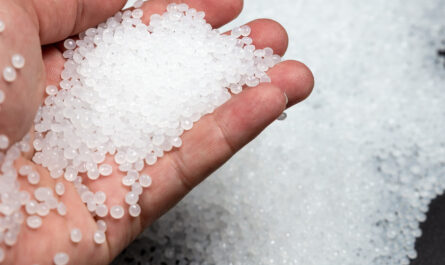Sludge treatment chemicals are extensively used during the wastewater treatment process to remove contaminants from sludge produced at wastewater treatment plants. Sludge is a by-product generated during the filtration of industrial and municipal wastewater containing bacteria, pathogens, and other contaminants. Sludge treatment chemicals help condition and dewater the sludge to reduce its volume and moisture content for safe disposal or reuse. Popular sludge treatment chemicals include coagulants & flocculants, disinfectants and biocides, pH conditioners, and others. Coagulants help in clustering solid particles together to form larger particles that are easily removed. Flocculants bind these particles forming large flakes that settle rapidly. Disinfectants and biocides remove disease-causing pathogens. pH conditioners maintain the required pH level for optimum performance of other chemicals. With growing urbanization and industrialization, the volumes of wastewater generated globally have increased manifold posing significant treatment challenges.
The global Sludge Treatment Chemicals Market is estimated to be valued at US$ 9561.7 Mn in 2023 and is expected to exhibit a CAGR of 4.7% over the forecast period 2023 to 2030, as highlighted in a new report published by Coherent Market Insights.
Market key trends:
Wastewater management regulations have been tightened globally in light of growing environmental concerns. Stringent standards have been adopted for the treatment and disposal of sludge generated at municipal and industrial wastewater treatment facilities. Major economies have implemented rules around the quality parameters and permissible contamination levels in treated sludge based on its end-use. For instance, the US EPA has proposed rule changes to the sewage sludge regulations under the Clean Water Act for increased public safety and environmental protection. Similarly, the European Union’s Sewage Sludge Directive has established strict criteria for sludge hygiene standards and agricultural applications. The growing legislative pressure on industries and municipalities to adopt responsible wastewater management practices is a key driver boosting demand for sludge treatment chemicals worldwide.
Porter’s Analysis
Threat of new entrants: The threat of new entrants is moderate as the sludge treatment chemicals market requires high capital investment for machinery and infrastructure. However, presence of large number of sludge treatment chemical manufacturers globally increases threat of new entrants.
Bargaining power of buyers: The bargaining power of buyers is high due to availability of a wide range of sludge treatment chemicals from various manufacturers. Buyers can negotiate on prices resulting in lower profit margins for established players.
Bargaining power of suppliers: The bargaining power of suppliers is moderate as availability of raw materials required for production of sludge treatment chemicals is concentrated among a few suppliers. However, switching costs from one supplier to another are low.
Threat of new substitutes: The threat of new substitutes is moderate as there are limited substitutes available for sludge treatment compared to use of chemicals. However, recyling and reuse of sludge poses a moderate threat.
Competitive rivalry: The competitive rivalry is high owing to presence of large number of global and regional players offering similar product portfolio with intense competition on pricing and quality.
Key Takeaways
The Global Sludge Treatment Chemicals Market Demand is expected to witness high growth. The global Sludge Treatment Chemicals Market is estimated to be valued at US$ 9561.7 Mn in 2023 and is expected to exhibit a CAGR of 4.7% over the forecast period 2023 to 2030.
Regional analysis: North America region dominates the sludge treatment chemicals market owing to stringent wastewater treatment regulations in the region. Asia Pacific is expected to be the fastest growing market for sludge treatment chemicals driven by growing population, industrialization and urbanization in major economies such as China and India.
Key players: Key players operating in the sludge treatment chemicals market are Suez, Kemira Oyj, Ecolab Inc., BASF SE, Kurita Water Industries Ltd., Beckart Environmental, and Ovivo.
*Note:
1. Source: Coherent Market Insights, Public sources, Desk research
2. We have leveraged AI tools to mine information and compile it




